10 takeaways from the Arizona primaries | 2024 Election
PHOENIX - We now have a better picture of how the general election in November will look like, days after primary elections took place on July 30.
Here are some takeaways.
1. It's Lake vs. Gallego for Senate
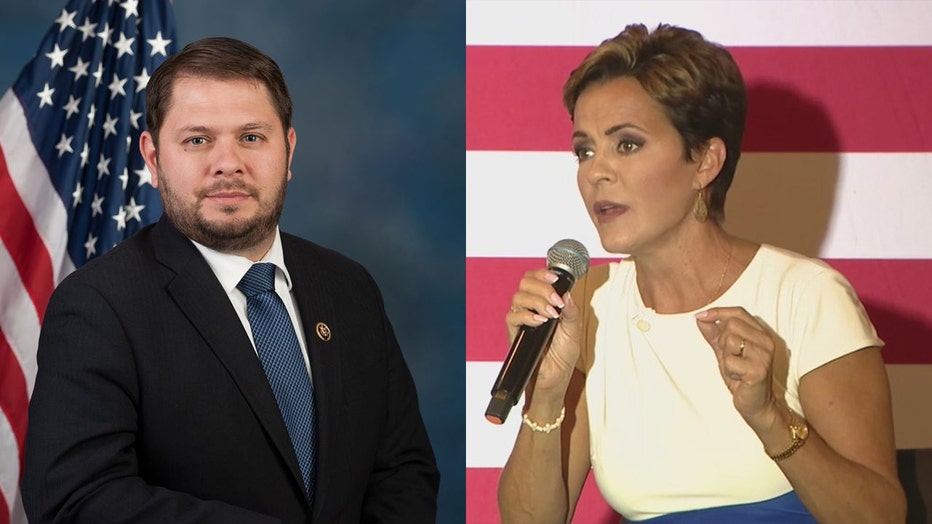
Ruben Gallego (left) and Kari Lake (right)
Unofficial results show Kari Lake will likely be back on the ballot as a candidate this November, as she is running ahead of Pinal County Sheriff Mark Lamb in the GOP senate primary.
Per the Associated Press, Lake made gestures toward unity, inviting people who didn’t vote for her to join her. She said she will need "people from all walks of life" and told "traditional Republicans" from the GOP establishment that "we love you," but she also framed the general election as "a battle between good and evil" and between "the people who want to destroy this country and the people who want to save America."
As for Lamb, he contended he is more electable and the best candidate to secure the border, but he struggled to raise the money needed to make his case to voters.
Even before major media organizations projected Lake as the winner of the GOP primary, it was clear who the Democratic candidate will be, because Congressman Ruben Gallego had no opponents in the Democratic senate primary.
Whoever wins the race will replace Kyrsten Sinema. She was elected to the seat as a Democrat, and became an independent in late 2022. She announced in April 2024 that she will not run for re-election.
2. Trump-backed candidate won Congressional primary
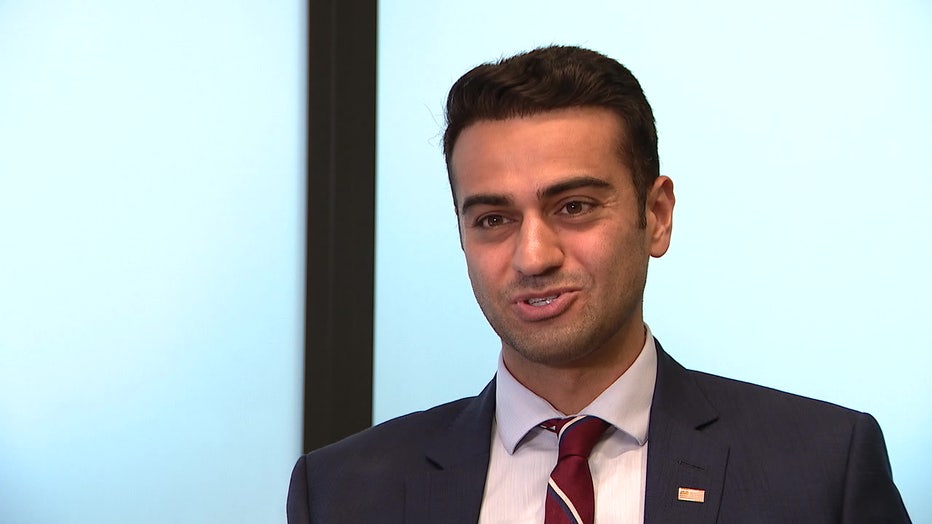
Abe Hamadeh
Lake was not the only candidate aligned with former President Donald Trump to win a primary race in Arizona.
In the 8th Congressional District, Trump endorsed both Abraham ‘Abe’ Hamadeh and Blake Masters.
"THEY WILL NOT LET YOU DOWN!" the former President posted on Truth Social. While dual endorsements are rare, it is not the first time Trump has made them.
Hamadeh and Masters were political allies turned bitter rivals in the race, and Hamadeh is projected to win the primary. Whoever wins the November election will succeed incumbent GOP Congresswoman Debbie Lesko.
Lesko, who is not seeking re-election, ran in the GOP primary for one of the Maricopa County Board of Supervisors seat and won.
3. Controversial candidates advance in GOP state legislative primaries
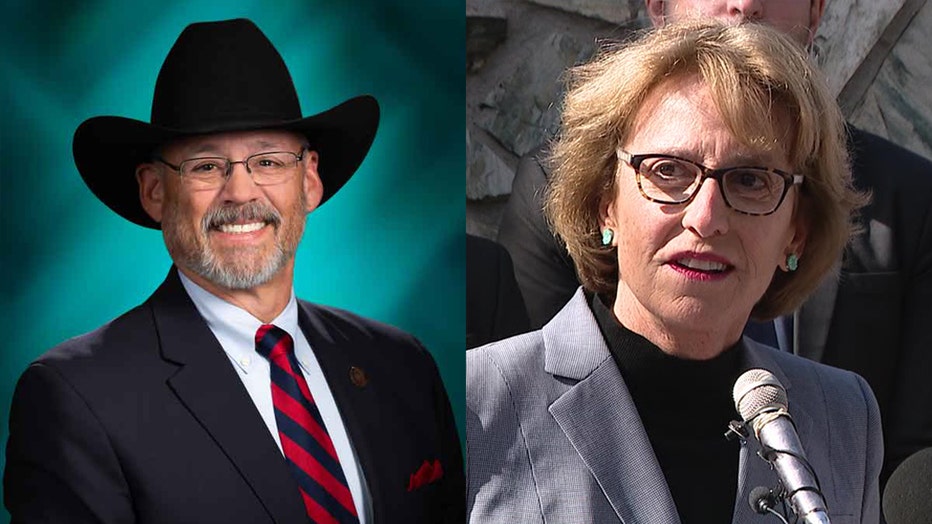
Mark Finchem (left) and Wendy Rogers (right)
In two state legislative districts, Republican voters chose candidates with controversies during the primaries.
In District 1, the AP is projecting a victory for Mark Finchem, who ran against Ken Bennett and Steve Zipperman for the GOP nomination.
Finchem, according to the AP, was a prolific proponent of claims that former President Trump lost his 2020 reelection because of widespread fraud. Such claims have been repeatedly debunked by courts, election experts and Trump's own attorney general.
Bennett, a former Secretary of State and State Senate president, represented the more moderate choice for voters. Finchem will run against Democrat Mike Fogel in November. Fogel ran unopposed in his party's primary.
In District 7, Wendy Rogers is projected to win the GOP primary. She faced David Cook in that race.
Like Finchem, Rogers is deemed a prolific election denier, and has been censured by the Legislature after backing white nationalism. Still, she's popular with her base and has a national following. Rogers' primary opponent, State Rep. David Cook, has criticized her for not focusing on more local issues like mining and water.
4. Election critic ousts incumbent Maricopa County Recorder
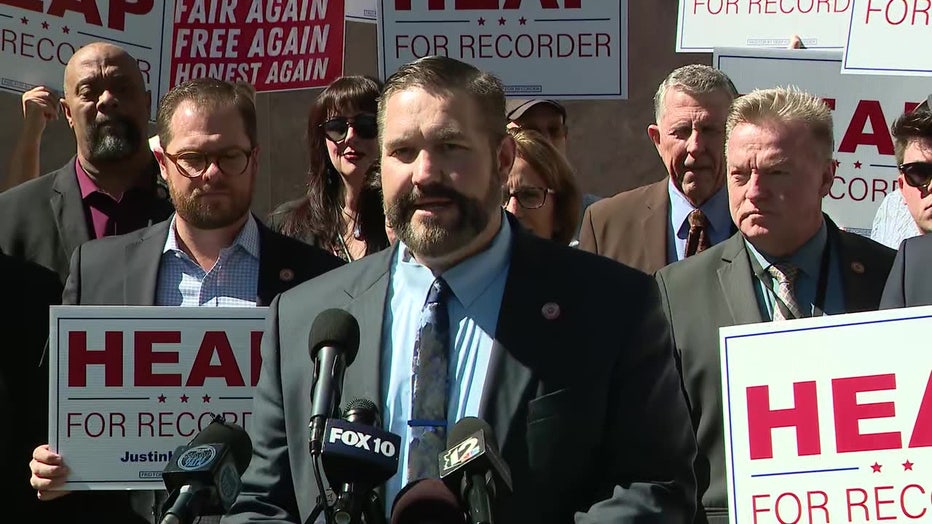
Justin Heap
In Maricopa County, GOP voters have decided not to back the incumbent county recorder who has fought back against death threats, almost constant harassment and streams of misinformation during his nearly four years overseeing elections in the county.
Stephen Richer is one of three candidates in the GOP county recorder primary, and Justin Heap is projected to win the race.
"Elections have winners and, sadly, losers. And in this one, it looks like I'm going to end up on the losing side of the column," Richer wrote on his personal X (formerly Twitter) account. "But that's the name of the game. Accept it. Move on."
During his first term, Richer has defended Maricopa County's elections, pointing to zero court cases with rulings in favor of those claiming the election was stolen from former President Donald Trump.
Heap, a state legislator representing Arizona's 10th Legislative District, has questioned certain aspects of how elections are run. During a June debate, Heap was asked if the election was stolen in 2020. In response, he said there was not enough transparency in the office to make a definitive statement.
Heap will face Democrat Tim Stringham in the November election. Stringham ran unopposed in the Democratic primary.
5. Maricopa County set to get another new sheriff
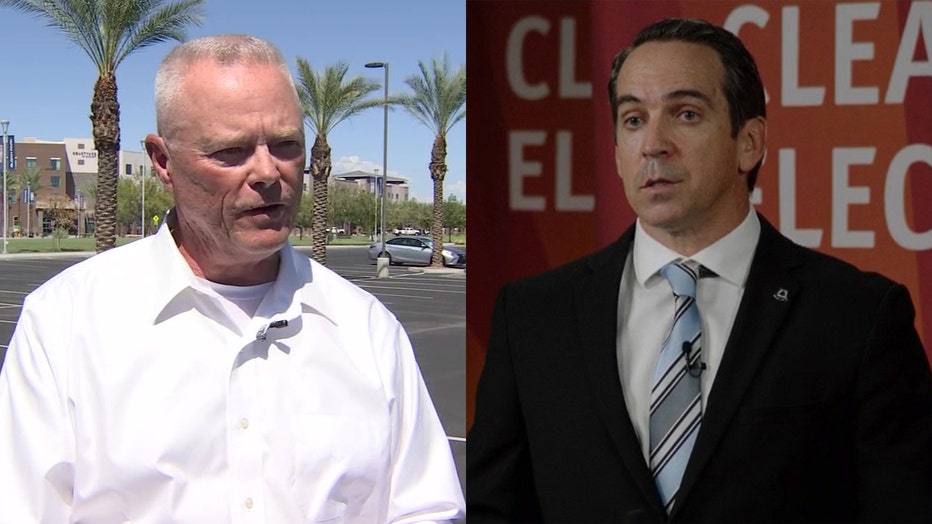
Jerry Sheridan (left) and Tyler Kamp (right)
It appears the tenure of Maricopa County's new sheriff will be a rather short one.
Based on projections, Russ Skinner will lose the Democratic primary for Maricopa County Sheriff to Tyler Kamp. Skinner's projected defeat in the primary also means that Maricopa County is set to get its second new sheriff in as many years.
Skinner, who was appointed as Maricopa County Sheriff earlier in 2024 following the resignation of Paul Penzone, has been with MCSO since 1990. Kamp, according to his campaign website, worked in various roles with Phoenix Police, from a sergeant in gang enforcement to a homicide detective.
Since Penzone's victory over Republican Joe Arpaio in the 2016 election, a Democrat has held the office of Maricopa County Sheriff. In November, Kamp will run against Jerry Sheridan, who won the GOP primary. This is the second time Sheridan is running for the seat: he ran against Penzone in 2020, but lost.
When we interviewed Sheridan during his 2020 campaign, he tried to distance himself from Arpaio, who is his former boss.
"I’m not Joe Arpaio. I’m Jerry Sheridan," Sheridan said in 2020.
6. Arpaio appears set to lose another election
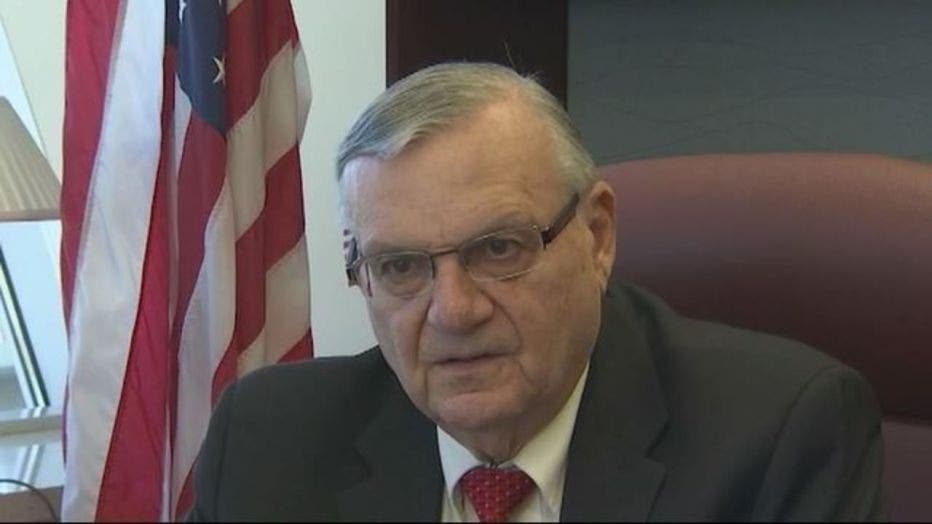
Joe Arpaio
Arpaio may have been voted out as sheriff years ago, but he has campaigned for elected office since then.
Those campaigns were without success, and his latest campaign may be no different.
According to unofficial results from the Maricopa County Elections Department, Arpaio is third in a three-candidate race for Fountain Hills Mayor. Incumbent Ginny Dickey is in the lead as of Aug. 2.
As mentioned above, Arpaio was voted out as sheriff in 2016, when voters chose Paul Penzone as Maricopa County Sheriff. Since then, he ran for the U.S. Senate in 2018, Maricopa County Sheriff in 2020, and Fountain Hills Mayor in 2022.
Results from 2018 show Arpaio came in third in that year's three-candidate GOP primary. In 2020, Arpaio came in second in the GOP primary for Maricopa County Sheriff, and in 2022, he lost out to Dickey in the Fountain Hills Mayor race.
7. Controversial Tucson area State Senator projected to lose primary
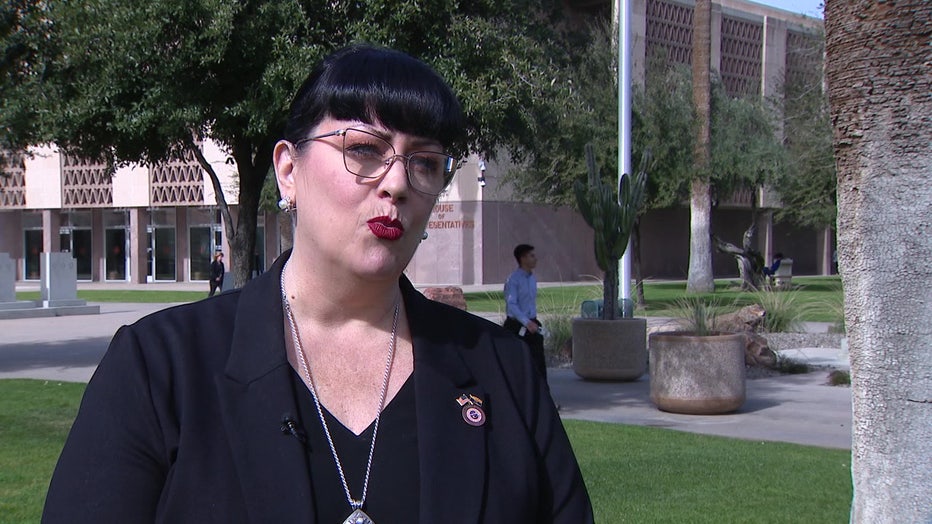
Justine Wadsack
The Associated Press has projected a defeat for Justine Wadsack, a Republican Senator who currently represents the state's 17th Legislative District.
Wadsack, who was running for re-election, faced Venden 'Vince' Leach in the GOP primary. Per reports from Tucson area newspaper Arizona Daily Star, Leach previously held the Senate seat before he lost in the Republican primary to Wadsack in 2022.
The Arizona Daily Star also reported that Wadsack is well known for culture war-themed attacks in the Arizona State Senate.
Reports from Tucson television station KOLD-TV said that Wadsack was in the news recently for claiming ‘political persecution’ over a speeding ticket. The traffic stop happened in March, but Wadsack did not sign the speeding citation due to legislative immunity. She still refused to sign the citation when the state legislature adjourned in June.
On July 23, the Arizona Fraternal Order of Police posted a statement on its Facebook page, announcing their decision to retract their endorsement of Wadsack as a result of the incident.
"While Sen. Wadsack has been a consistent supporter of public safety in her official capacity, this incident and her decision to publicly impugning the motives of police personnel is conduct unbecoming an elected representative," AFOP President Paul Sheldon wrote, in the statement.
8. Controversial former state lawmaker comes up short in State Senate run

Leezah Sun
Another primary race that features a candidate with a controversial history is the Democratic State Senate Primary for the state's 22nd Legislative District.
For that race, former State Rep. Leezah Sun ran against Eva Diaz. The Associated Press has projected Diaz to win.
Sun left the legislature earlier in late January 2024 amid an ethics controversy. The controversy, as detailed in an Arizona House Ethics Committee report, involved multiple allegations of intimidating behavior, involvement in a transfer of children as part of a private custodial matter of which she was "not a party or otherwise involved in the legal case," and allegations of harassment against three employees with a West Valley city.
The report came as a result of an ethics complaint that was filed against her by Democratic leadership in the State House.
In November, Diaz will face Steve Robinson, who ran unopposed in the GOP primary.
9. Voter turnout lower than expected
Featured
Arizona's primary election: Is election mistrust the reason for low voter turnout?
At a roundtable discussion hosted by Arizonans for Secure Elections on July 31, a day after Arizona's primary, the question of ‘Did some voters choose to stay home because they have been told to not trust the elections?’ came up.
Figures posted on Maricopa County's website show of the over 2.4 million registered voters in the county, only 641,625 cast a ballot for the primary this year, representing a 26.52% turnout rate.
At a roundtable discussion hosted by Arizonans for Secure Elections on July 31, the question of ‘Did some voters choose to stay home because they have been told to not trust the elections?’ came up.
"Unfortunately, a lot of people out there that are disparaging the election system, they just keep repeating the same thing over and over and over. They need to listen," said former Governor Jan Brewer.
"There's eyes and ears on virtually everything to ensure the safety of the voting process as we move forward," said Don Henninger with the Arizona Democracy Resilience Network.
10. Looking ahead: More for voters to decide in November
Featured
2024 Arizona Election: When it comes to ballot measures, voters have some big choices to make in November
Besides the presidential election and various other races, voters in Arizona will also decide on a number of ballot measures. Two of them, Prop 139 and Prop 314, deal with hot-button issues.
Come November, voters will have more to vote on.
Besides selecting a Senator, nine House members, and various state offices, voters will also select a new President, as well as decide on a number of ballot measures.
Two of the ballot measures - Proposition 139 and Proposition 314, deal with hot-button topics. Proposition 139, if approved, will add abortion rights to the Arizona State Constitution, up until the point of fetal viability.
Per the website for non-profit organization KFF (formerly known as The Kaiser Family Foundation), fetal viability "varies from person to person and also by the medical resources that are offered in their community, but is generally estimated to be at around 24 weeks LMP."
Proponents of Prop 139 say the choice for an abortion should belong solely to the pregnant person, while opponents say the measure's language is too broad.
Proposition 314 is a measure on illegal immigration and border security. The measure will, among other things, make it a state crime for non-citizens to enter the state at any location other than a port of entry.
Opponents of the measure are calling it racist, and the executive director of a Latino advocacy group even called it "SB1070 on steroids," a reference to a controversial 2010 state law that allowed police to check the immigration status of people they believed to be in the United States illegally. SB1070 was ultimately found to be mostly unconstitutional.
Supporters of Prop 314, however, say it empowers local law enforcement to arrest migrants crossing illegally.
The Associated Press (AP) contributed to this report.



